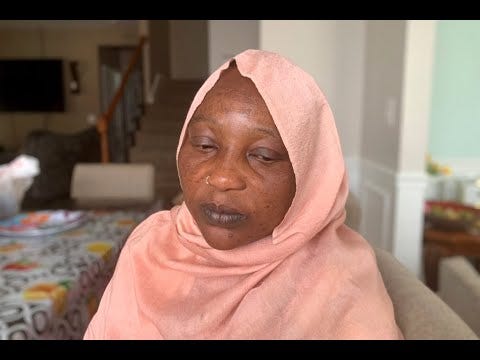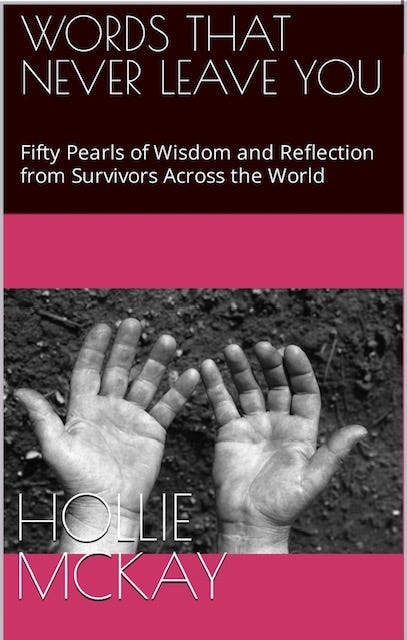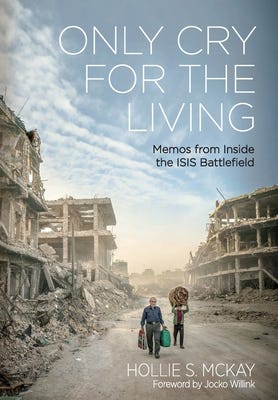VIDEO: Darfur and the Genocide that Never Ended: Why No One Should Be Surprised by the Eruption of War in Sudan’s Capital
No conflict ends without proper accountability
It is heartbreaking to see the senseless war that erupted in Sudan this week, claiming hundreds of innocent lives and prompting thousands to run in agony from their homes. There is no telling how long it will last and what resources the international community will need to string together under the backdrop of the ongoing conflict in the likes of Ukraine and Burma and the protracted famine and abuses in many more parcels of our precious world.
The violent power struggles of Sudan’s top two generals now ricocheting through Khartoum are pathetic power and money grabs by those who care only about lining their own pockets and nothing about human life and dignity. In essence, military commander Lt. Gen Abdel Fattah-al Burhan pits his forces against state-sponsored paramilitary fighters called the Rapid Support Forces (RSF) and led by Darfur-native Lt. Gen. Mohamed Hamdan Daglo (known as Hemedti) who sought to take control of the country last year. Four years ago, the men operated together to topple longtime dictator Omar al-Bashir. Two years later, they toppled the civilian transitional government intending to usher in a new era of democratic elections.
But don’t be fooled by headlines suggesting what’s happening in Khartoum is in any way “new.” On the contrary, this bloody onslaught and fight for dominance has its origins in the Darfur genocide of two decades ago and the sequence of collisions and failures that have never stopped since. Darfur might have fallen from the headlines, but the conflict never truly went away.

While those caught in the crossfire suffer the worst in any war, I understand the exhaustion and disconnect that often emanate from the outside. It is exhausting and frustrating, and no matter how much money might be thrown at a place or problem, it seems like it will never end.
I have thought a lot this week about the carved stone memorial for President Franklin D. Roosevelt that I run past nearly every morning when I am in Washington, DC. One quote in particular always catches my eye:
“I have seen war. I have seen war on land and sea. I have seen blood running from the wounded...I have seen the dead in the mud. I have seen cities destroyed...I have seen children starving. I have seen the agony of mothers and wives. I hate war.”
August 14, 1936
I, too, hate war. It is tempting to go inward. I am tired. But I am not tired enough.
The happenings brought me back to the need to illuminate the “other” war Sudan still faces, despite the lack of media attention since the declaration of genocide twenty years ago: Darfur.
Each morning, Juma Sefedin Shaibu, a physician assistant at the cardiology department at Vanderbilt University Hospital in Nashville, Tennessee, scrolls through social media for the latest updates from his war-torn homeland, Darfur, Sudan.
“Bandits still rape women, burn huts to the ground, and every day people are running for their lives,” Juma, in his mid-forties, notes softly, examining the smoking ruins on the edges of El Geneina, the capital of West Darfur. “And people can’t get adequate water. Even when they run to camps for the internally displaced people, the attackers overrun the camps, displacing the victims twice over.”
His uncle, a driver for a local aid organization, was ripped from his car and shot at on the edges of El Geneina in June 2021, and many others he knows have endured similar fates.
Juma came to the United States as a refugee in 2014, yet the Darfur crisis routinely spurs him back to the troubled region that much of his family had fled.
In a partnership with the reconciliation-focused non-governmental organization Sudan Sunrise, Juma tirelessly seeks to help in food distribution and delivery of medical assistance to those in need.
“We are buying food items like maize, beans, and cooking oil. It’s important to help as much as possible with medical supplies, especially delivering painkillers.”
Juma, the Kujali Africa community president in Nashville, was conscripted as a child soldier for the anti-government Sudan People’s Liberation Army in the 1990s during the Sudanese civil war. After being rescued and educated by the United Nations International Children’s Fund in Uganda, he became an aid worker with the United Nations Development Program and United States Agency for International Development.
Nevertheless, Juma has long felt the Darfur conflict has dimmed from the press and mind of the international community, even though the region is still in turmoil, but without the same scale of media attention and humanitarian assistance as when the conflict hit the headlines in 2003.
Like Juma, Halima Hamad, 44, came to the United States with her daughter and husband as a refugee from Darfur in 2012. Yet her life in America still revolves around the war thousands of miles back home.
“They [militias] don’t care about the age of the women,” Halima, also a Nashville resident, says with emotion catching her throat. “They will put a gun to the husband’s head and make them watch the rape. There is no freedom nor justice for my people. I think of home in Darfur and what my people are going through all day, all night.”
Halima, who has worked various factory jobs in the United States, was severely beaten with the butt of a Janjaweed’s AK-47 15 years ago, an assault that left her with hormonal disorders.
“My hair turned all white after the incident,” she continues frankly.
And Khamis Hassan, a spokesperson for the United Resistance Front, an umbrella group for five rebel factions formed in 2007, said the event that still haunts his memory happened in May 2016.
Khamis, then a police officer, said he found several badly beaten girls and women hiding in the bush after being gang-raped while collecting firewood in a village in Darfur.
“They had open wounds all over their bodies and were terrified and crying,” he says. “I was heartbroken. I did not feel well after that. So, I quit my job in the police and left the country.”
In 2017, Khamis fled to Paris, France, to focus on speaking for the United Resistance Front. Instead, he points out desperately that life for those he left behind continues to deteriorate.
“There is no food, no schools, and people cannot go to their farms to cultivate crops. We need help. If not, we will fight — it is our last option. I will not sit in my house and wait while attackers slaughter my people.”
Contentions between Arabs and West Darfur’s preeminent ethnic community, the Masalit tribe, still flares in painful bursts through the state’s remote, gold-rich southern pocket of El Geneina. As a result, thousands suffer from severe acute malnutrition, with little access to anything more than mangoes to eat, according to the medical aid group Medicins Sans Frontieres.
Some Darfuris say the perpetrators of the conflict have ties to the RSF, an outfit comprising remnants of the pro-Bashir Janjaweed militia accused of orchestrating the genocide that first hit the region twenty years ago.
“The Rapid Support Forces is the same as the Janjaweed,” Juma insists. “It is a powerful militia with support from the government in Khartoum. They used to come on camels and horses, but now it is all land cruisers and trucks.”
Indeed, the Janjaweed has officiated into the RSF in recent years and become even more high-powered under Hemedti's leadership, with support from warlords in neighboring nations. Juma points out that the reformed Janjaweed still benefits from the war by selling minerals, such as gold, and stolen livestock.
“But it is worse now as nobody is paying attention,” he emphasizes.
The initial conflict — later deemed genocide by Washington — broke out in 2003 when frustrated non-Arab revolt protested the Bashir-led Sudanese government, angered by the lack of resources in the barren area on the western edges of the country. Instead, the majority Arab Janjaweed — which means “evil horsemen” —crushed the demonstrations and uprooted more than two million from their homes, according to the United Nations.
The carnage drew the attention of Hollywood bigwigs who drove the viral “Save Darfur” campaign. In 2010, actor George Clooney founded the Satellite Sentinel Project to monitor human rights violations by the Sudanese government.
“Without him, we would never have had a full picture of what was happening across our lands,” Juma surmises.
But Darfurians emphasize that the continued contentions are nuanced.
“Most of us are Muslims, but we consider ourselves African Muslims. We consider ourselves indigenous first,” Juma explains. “But this is our land—the land of our ancestors.”
And even though Bashir, the central offender, is behind bars, the situation continues to worsen.
After removing most bilateral sanctions in 2017, the United States officially removed Sudan’s 28-year status as a state sponsor of terrorism, paving the way for closer economic and business ties. However, ordinary Darfurians like Juma contend they have not seen any benefits of the sanctions removal.
There is no sense of judicial fairness for all they have endured, either.
The International Criminal Court indicted Bashir in 2009 in response to human rights abuses carried out by the military and loyal militias during the Darfur conflict. While he remains behind bars in Khartoum, the new government has not yet turned him over.
“There is no justice, nobody has said sorry, and it was all just covered up. People feel voiceless. But we, Masalit, will never give up. We will fight until our last breath,” Juma stresses.
The nurse by day and activist by night has long asked the United States and the international community to take action to alleviate the situation. In the early summer of 2021, he warned me that lifting the sanctions did not help the many still suffering.
“We need reconciliation, and the key to that is peace and justice. We are just farmers and cattle keepers, and we don’t want to fight,” Juma said. “We need peace, and we need Washington to pressure the Sudanese government to stop this killing and let Bashir face the International Criminal Court.”
Only he never did. And nothing in Sudan fundamentally changed.
When old wars wane without accountability for those wedged into the firing line without reason, the conflict will never truly end. There is no peace, no justice, without accountability. But, as we see now with the rash of war in Sudan, the many powers-to-be sowed the seeds of the disaster long ago.
And again, here we are. The flood of fighting has stolen the democratic dreams of many Sudanese. Aid agencies worldwide cannot reach those most in need, and countless lives will no doubt be claimed in the coming days.
Sadly, Sudan joins the somber ranks of several Arab states who have risen to depose brutal dictators, only for the power struggle on the other side to be far worse – with little hope in sight.
PLEASE CONSIDER A PAID SUBSCRIPTION TO THIS SUBSTACK TO HELP KEEP INDEPENDENT, AGENDA-FREE WRITING AND JOURNALISM ALIVE. THANK YOU SO MUCH FOR YOUR SUPPORT.
For speaking queries please contact meta@metaspeakers.org
Follow me on Instagram and Twitter for more updates
HOLLIE’S BOOKS (please leave a review)
** Short read of meaningful lessons gleaned from the ordinary forced to become extraordinary
Order your copy of “Afghanistan: The End of the US Footprint and the Rise of the Taliban Rule” due out this fall.
For those interested in learning more about the aftermath of war, please pick up a copy of my book “Only Cry for the Living: Memos from Inside the ISIS Battlefield.”
If you want to support small businesses:






